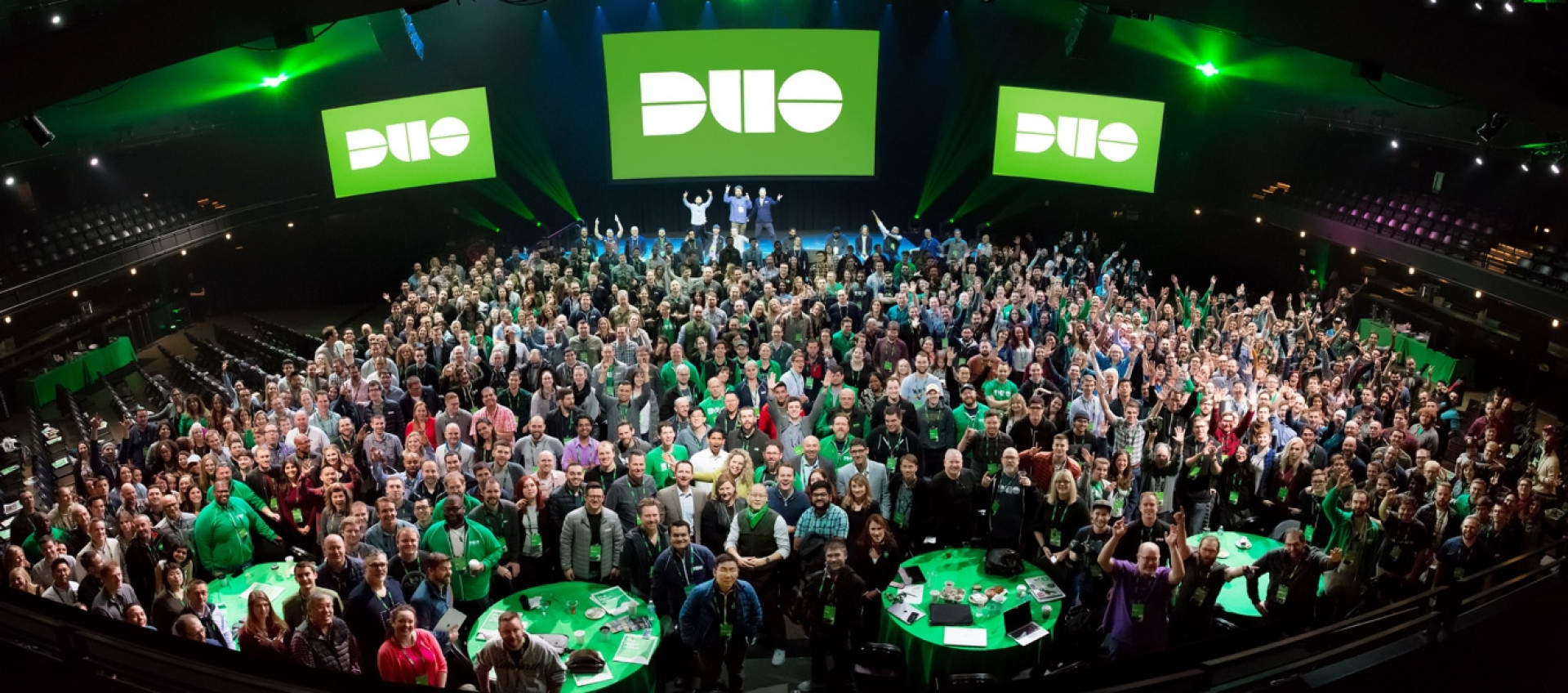“Move fast and break things” was a slogan used at Facebook in its early days to encourage employees to embrace velocity and innovation over perfection. It captures much of the startup mindset, where agility and speed are often competitive advantages over larger companies, where plodding processes can stagnate innovation.
The security company, Duo, is one example. Duo’s co-founder and CEO, Dug Song, admits that his company’s success wasn’t predicated on being more capable than its competitors. Song says the success of Duo hinged on three things: a winning strategy, the right team and superior execution.
Duo was built to deliver a uniquely high-velocity business model, with goals of providing the fastest time to value in security by making the product and customer experience as frictionless as possible and consistently innovating ahead of the market. “It’s not enough to get ahead anymore - you have to stay ahead.”
Here are some of the key takeaways from Duo’s successful run from a startup to its acquisition by Cisco for more than $2 billion.
A Winning Strategy
In many ways, the cybersecurity industry grew by stoking the fear around security breaches and developing complex security products with questionable effectiveness. Duo took a different approach: to focus on customer’s needs first. The company decided to concentrate on the larger problem of security - the need for simple security solutions that were as easy and effective for a modern workforce as mobile and cloud-based IT had become
Another key to Duo’s success was to establish deep trust with its customers by being transparent and ethical, reliable and dependable, and demonstrating expertise across the organization. Duo’s customers and partners have come to value both the company and its products.
The results were phenomenal: Duo built a reputation as being the “Most-Loved Company in Security” with its customers, partners, and even employees. It delivered the fastest time-to-value of any security vendor, led the industry with a 70+ quarterly Net Promoter Score and renewal rates in the high 90s.
Building the Right Team
Having the right team is essential to a company’s success. Duo built its team by focusing on diversity. Yet this approach wasn’t simply a diversity of cultural backgrounds or opinions, but a diversity of mental models, frameworks, skill sets, and experiences. 80% of Duo’s employees had no prior experience in cybersecurity, which was seen as an advantage - the opportunity to tackle unsolved problems from a variety of new perspectives.
Every interview at Duo involved learning about an individual’s background, skillsets, and experiences - but also “what made them unique.” This helped the Duo hiring team to understand not only what sort of contribution an applicant could make, but what they could teach the company.
This allowed the company to integrate new capabilities quickly, and it helped the company find novel approaches to every challenge the business faced. To this day, Song and Duo co-founder Jon Oberheide onboard every new employee by leading them through the company’s mission, vision, values, and goals.
Song also wanted to empower its employees to do their best work by “reducing barriers to brilliance,” and designing an inclusive workplace and environment. By building a platform of opportunity where Duo could match its needs to opportunities for people and their careers, “individual success could lead to team success, which could lead to customer success.” The efforts have paid off, with Duo having Glassdoor ratings of 4.5+ and best-in-class SaaS company metrics.
Superior Execution: Win or Learn
Song credits his company’s agility and success to core cultural values instilled in Duo team members during the onboarding process: “Engineer the Business,” “Learn Together,” and “Be Kinder Than Necessary.” He contends that Duo isn’t smarter, harder-working, or better resourced; rather, the company has excelled because of its culture of learning and appreciation. Duo was built to make good decisions faster by learning quickly from bad ones and succeeding as a team.
With new product features shipping to customers every two weeks, decisions in the company had to be made at least as fast. The scalable way to do this was to “push decision making down” in the company, where employees could be trusted to make decisions not gated by executives or requiring bureaucratic signoff. Every employee had a scope of responsibility and a sphere of influence as a “mini-CEO.” Every decision had an owner, with “blameless retrospectives” that would ensure the team could learn as much from failure as success.
Meetings across the company, and every all-hands meeting would start or end with a round of public appreciations - employees thanking each other for the specific things they saw others do to help the team be successful. This helped model the behavior the team wanted to see and elevate the visibility of contributions across the company in a way everyone could learn from, including Duo’s leaders.
In addition, Duo’s management team would jointly write a board report every six weeks which detailed the plans, progress, and problems across the business. This would be shared as a summary of Duo’s learning and achievement not only with the company’s board of directors, but with every employee. Those eight reports per year over Duo’s lifetime effectively comprised “the Book of Duo,” which Song said was often used in onboarding new team members.
Song said that many of the decisions in the company he didn’t necessarily agree with. Yet his role wasn’t to ensure the best possible decision but commitment to a quality decision-making process, with a team that could “disagree and still commit” to support each other’s ideas. “We win or we learn,” he said.
By having a winning strategy, the right team, and superior execution Duo was able to build a company that simplified security and allowed companies of all sizes to better secure their workforce.
